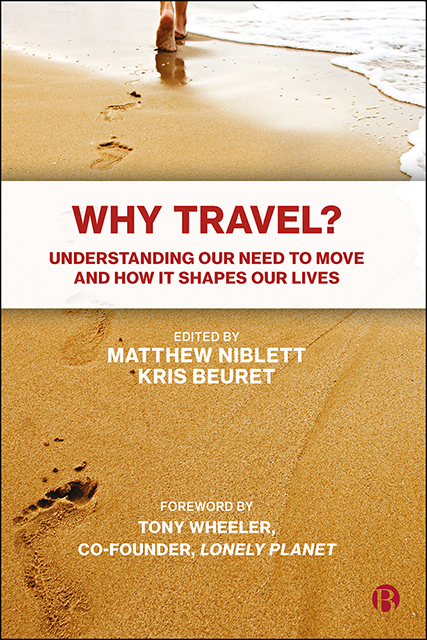Book contents
14 - Travel’s Place in the Environment
Published online by Cambridge University Press: 21 April 2023
Summary
The environment is a tricky subject to deal with, with its almost mystic quality of unassailability. The environment is fragile and precious. Without our active care and protection, the sheer success and scale of the human species threatens to damage and destroy the environment. There are numerous examples to prove this.
And so this is truly the most important chapter in this important book. No environment, no travel. We have yet to find a truly sustainable solution to humanity's place in the environment and a balanced role for travel in it. This chapter will not conclude with a rational solution because our understanding and knowledge of a perfect relationship between travel on a scale we are currently experiencing, and a stable world ecology, is elusive. Having recognized the importance of the environment in our life on Earth, our expertise in knowing how to live a sustainable life is still in its infancy.
But this chapter will conclude with optimistic hope. The symptoms of the crisis have hit home, they have hit us hard in the last 50 years and most countries, most governments, most politicians and all international agencies are starting to say that they recognize the scale and urgency of the need to take action. But all of the people in these bodies are fearful of the consequences. Can politicians take the necessary actions (if we know what they are) and keep their communities in support? Do we know, and can we afford the costs of doing the right thing? (Can we afford the costs of not doing?) Beware the leader or sage who proclaims they know how to solve the triple challenge of human wellbeing, global healthy environment and universal economic prosperity. Often seen as competing aims (increasing one to the detriment of another), they are of course intricately interlinked.
Humans have always impacted and shaped our environment in some way, and often our ability and propensity to travel has spread the effects of our activities across wide areas. Sometimes these impacts have been very negative for other species – for example scientists attribute the extinction of many large mammals in pre-historic times to the activity of human hunting, finding that whenever humans (or our ancestors) migrated into a new area, the larger mammals tended to become extinct.
- Type
- Chapter
- Information
- Why Travel?Understanding Our Need to Move and How It Shapes Our Lives, pp. 275 - 296Publisher: Bristol University PressPrint publication year: 2021

